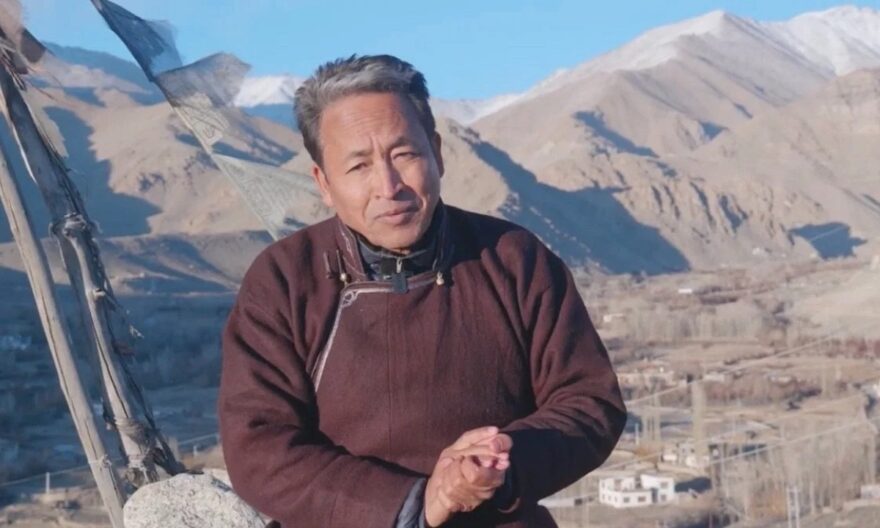
Solicitor General Tushar Mehta on Thursday announced to the Delhi High Court that climate activist Sonam Wangchuk and his associates have been released from detention.
This came during a hearing before a bench composed of Chief Justice Manmohan and Justice Tushar Rao Gedela, which was addressing petitions seeking Wangchuk’s release as well as challenging the prohibitory order issued by the Delhi Police.
The situation began when Wangchuk and approximately 120 other activists from Ladakh were detained at the Delhi border while attempting to march to the capital. Their goal was to demand 6th Schedule status for Ladakh, a designation that provides special administrative rights to tribal areas in the northeastern states of India, including Assam, Meghalaya, Tripura, and Mizoram.
This status is aimed at enhancing the autonomy and governance of tribal communities in these regions.
During the proceedings, Solicitor General Mehta confirmed that the Delhi Police had not only released Wangchuk and his associates but also withdrawn its earlier order prohibiting assemblies and protests in various parts of Delhi. He noted that while their movement is now unrestricted, it remains subject to compliance with legal provisions.
Mehta’s announcement provided a sense of relief to the activists and their supporters, who had been vocal about their demands and the importance of their cause. The withdrawal of the prohibitory order was also seen as a step towards safeguarding the right to peaceful assembly and protest, which is crucial for democratic expression.
However, Advocate Prashant Bhushan, who appeared in a separate petition, highlighted concerns regarding the status of other individuals who were still under restraint. He emphasized that despite Wangchuk’s release, there are still people whose movements remain restricted, indicating ongoing challenges faced by those advocating for their rights.
The bench’s acknowledgment of the situation and the Solicitor General’s updates reflect the court’s active role in ensuring that the rights of individuals, particularly those engaged in peaceful protests, are upheld. The case has sparked discussions about the balance between law enforcement and civil liberties, particularly in the context of protests demanding rights and recognition for marginalized communities.
As the hearing concluded, the developments raised questions about the treatment of activists and the importance of safeguarding their rights, especially when they seek to address pressing issues affecting their communities.
The outcome of this situation will likely resonate beyond Delhi, highlighting the need for continued dialogue and advocacy for the rights of those in tribal areas and other marginalized groups in India.




